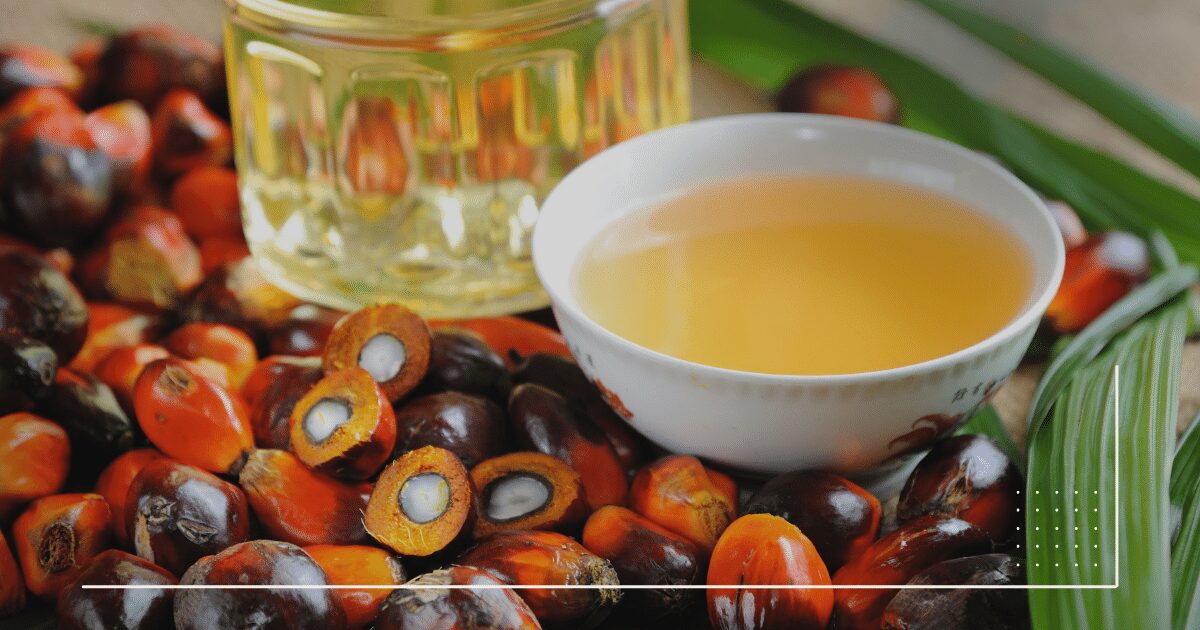A Guide to Palm Oil Storage Business in Nigeria

by Counseal Team
Updated March 15, 2025

Palm oil has long been Nigeria’s golden crop, with its multi-purpose applications in the food and non-food industries. As the demand for this versatile oil continues to rise globally, entrepreneurs are discovering profitable opportunities within the lucrative palm oil storage business in Nigeria.
With its fertile soil and ideal climate conditions, Nigeria is blessed with abundant palm trees that yield high-quality fruits, making it an optimal location to tap into this thriving market. In this article, we will delve into how business enthusiasts like you can unlock these profitable opportunities in the palm oil storage industry and navigate their way toward success in 2023.
- The Growth of the Palm Oil Industry in Nigeria
- Key Factors to Consider Before Starting a Palm Oil Storage Facility
- Best Practises for Palm Oil Storage and Handling
- Compliance with Health and Safety Regulations
- Securing Financing for Your Palm Oil Storage Business
- Building Relationships with Palm Oil Producers and Suppliers
- Marketing and Distribution Strategies for Palm Oil Storage
- Leveraging Technology for Streamlined Palm Oil Storage Processes
- Future Trends and Opportunities in the Nigerian Palm Oil Storage Market
- Frequently Asked Questions
The Growth of the Palm Oil Industry in Nigeria
The palm oil industry in Nigeria has experienced significant growth over the years. This growth has been driven by the increasing demand for palm oil, both domestically and globally.
With its ideal soil and climate conditions, Nigeria is well-suited for palm tree cultivation, allowing it to produce high-quality fruits that are essential for palm oil production. This has made Nigeria a lucrative market for entrepreneurs looking to tap into the profitable opportunities within the palm oil storage business.
As the demand for palm oil continues to rise in various industries, such as food, cosmetics, and biofuels, you, as an entrepreneur in Nigeria, can take advantage of this growing market by investing in palm oil storage facilities.
By establishing efficient storage systems and ensuring proper preservation of the product’s quality, you can unlock profitable opportunities within this sector.
With its wide range of applications and Nigeria’s favourable agricultural conditions, the growth potential of the palm oil industry is immense.
If you understand this potential and make strategic investments in the palm oil storage business, you stand to benefit from this thriving market in Nigeria.
Key Factors to Consider Before Starting a Palm Oil Storage Facility
Before starting a palm oil storage facility in Nigeria, there are key factors that you need to consider;
- It is important to assess market demand and competition. As the demand for palm oil continues to rise both domestically and internationally, understanding the current supply chain and identifying potential competitors is crucial for success in this industry.
- You need to evaluate the logistics and infrastructure required for an efficient storage facility. This includes considering the location of the facility in relation to palm oil production areas, transportation routes, and proximity to major markets or export hubs. Adequate facilities, such as warehouses with proper temperature control systems, reliable power supply, and secure storage options, must be considered.
- Additionally, ensuring compliance with regulatory requirements is essential when entering the palm oil storage business in Nigeria. You must be familiar with local laws pertaining to food safety standards, licencing procedures, environmental regulations, and any other applicable laws. This will not only ensure smooth operations but also build credibility among customers.
By carefully assessing market demand, evaluating logistical needs, and being compliant with regulations before starting a palm oil storage facility in Nigeria, you increase your chances of tapping into profitable opportunities within this thriving market.
Best Practises for Palm Oil Storage and Handling
Best practises for palm oil storage and handling are essential to maintaining the quality and profitability of this versatile commodity.
It is crucial to store palm oil in proper conditions to prevent oxidation and rancidity. This includes storing it in clean, airtight containers or tanks at a temperature below 30°C. Additionally, you should conduct regular inspections to detect any signs of contamination or spoilage.
Handling palm oil involves proper hygiene practises to prevent bacterial growth and preserve its quality. You should ensure that all equipment used for transportation or processing is cleaned regularly and that your workers, if any, follow hygienic procedures, such as wearing gloves and maintaining personal cleanliness.
Also, effective inventory management plays a key role in a successful storage business. It is important to implement a system that tracks stock levels, monitors expiration dates, manages supply chains efficiently, and reduces waste. By adhering to these best practises, you can make as much profit as possible while ensuring high-quality products for customers worldwide.
Regulatory Framework and Licensing Requirements for Palm Oil Storage in Nigeria
To engage in palm oil storage activities, you must comply with specific standards related to hygiene, packaging, labelling, transportation, and storage facilities. These regulations are designed to guarantee that stored palm oil maintains its quality throughout its shelf life.
Operators in this sector need to obtain proper licences from relevant authorities, such as:
- National Agency for Food and Drug Administration and Control (NAFDAC)
- Licence for Food Preservation from the Federal Ministry of Agriculture and Rural Development (FMARD).
- Tax registration with the Federal and State Inland Revenue Service.
- Other licences that may be peculiar to the state from which you operate
A major prerequisite for applying for any of the above licences is company registration. If your business is not yet registered, click here for more details.
You also need to adhere to safety measures regarding fire prevention systems within their storage facilities.
Ensuring compliance with these regulations is vital not only for meeting legal obligations but also for building trust among customers who expect high-quality products.
Overall, navigating the regulatory framework and obtaining the necessary licenses are essential steps as you venture into the palm oil storage business in Nigeria. Adhering to established guidelines ensures product integrity while instilling confidence among consumers who value safe and reliable food products.
By understanding these requirements early on, you can position yourself successfully within this thriving market sector.
Compliance with Health and Safety Regulations
To ensure compliance, you need to implement robust health and safety protocols throughout your operations. This includes conducting regular risk assessments, providing appropriate training for employees, equipping facilities with necessary safety equipment, and maintaining proper storage practises.
Additionally, you must stay up-to-date with evolving regulations related to handling hazardous materials or preventing accidents.
By prioritising compliance with health and safety regulations, you can not only safeguard your workforce but also mitigate financial risks associated with potential accidents or legal issues.
Ultimately, creating a safe working environment promotes productivity while contributing to the long-term success of your business.
Securing Financing for Your Palm Oil Storage Business
To secure financing, develop a comprehensive business plan that showcases your understanding of market demand, competition analysis, and growth projections. This will help convince potential investors or lenders about the profitability of your venture.
Additionally, having a well-developed marketing strategy and highlighting your competitive advantage can also attract financiers.
Besides traditional forms of financing from banks or financial institutions, you should explore other funding options, such as government grants and subsidies specific to agric-businesses or accessing funds from agricultural development programmes.
Building partnerships with key stakeholders in the palm oil sector, like plantations or producers, can also provide access to funding sources while fostering long-term relationships within the industry.
Overall, securing financing for your palm oil storage business entails thorough preparation and demonstrating a clear vision for profitability. By leveraging available resources and exploring diverse funding avenues, you can tap into the market successfully.
Building Relationships with Palm Oil Producers and Suppliers
Building a reputation as a reliable partner goes a long way towards establishing long-term relationships.
Finding mutually beneficial business strategies strengthens these relationships. This could involve providing support for producers’ sustainability efforts or offering training programmes to enhance their skills and productivity.
In turn, having access to high-quality palm oil from reliable suppliers ensures customer satisfaction for the storage business.
Overall, establishing strong relationships with palm oil producers and suppliers requires effective communication, trust-building measures, and creating mutual benefits for all parties involved.
Marketing and Distribution Strategies for Palm Oil Storage
Marketing and distribution strategies are crucial for the success of any palm oil storage business in Nigeria. With the increasing global demand for palm oil, you need to develop effective marketing tactics to attract customers and create a brand presence.
This can be done through targeted advertising campaigns that highlight the quality and reliability of your storage facilities as well as the sustainable practises employed. If your major market is through social media, pictures and videos demonstrating your hygienic storage practices will work as well.
In terms of distribution, establishing strong partnerships with suppliers and buyers is essential.
You should aim to collaborate with reputable producers who can provide a steady supply of high-quality palm oil.
Investing in infrastructure, such as modern warehouses equipped with temperature control systems, is also important for maintaining product quality during storage. Moreover, utilising technology-based inventory management systems will streamline operations and improve overall efficiency, ensuring timely deliveries and customer satisfaction.
If you, however, are starting small and cannot afford the modern infrastructure, you can do research on local storage practises. This will be effective for you if you are starting small.
By implementing effective marketing strategies and developing efficient distribution networks, entrepreneurs can unlock profitable opportunities within Nigeria’s thriving palm oil storage market.
Leveraging Technology for Streamlined Palm Oil Storage Processes
You can optimise your storage operations and reduce the risk of spoilage or waste by implementing advanced technologies, such as automated material handling systems, sensor-based monitoring, and cloud-based data management.
These technological solutions enable real-time tracking of inventory levels, temperature control, and quality assessment, ensuring that stored palm oil remains fresh and marketable.
One key advantage of leveraging technology in palm oil storage is the ability to monitor and manage facilities remotely. Through mobile applications or web-based platforms, you can access vital information about stock levels, inventory turnover rates, and other key performance indicators.
This allows for timely decision-making and strategic planning to meet evolving market demands. Additionally, automation reduces reliance on manual labour, minimises human errors, and increases overall operational efficiency.
By embracing technology-driven solutions, you can unlock profitable opportunities while contributing to sustainable practises. With efficient infrastructures powered by cutting-edge tools like IoT sensors, artificial intelligence algorithms, and blockchain traceability systems, supply chain transparency is heightened throughout every stage, from production through distribution all the way until final consumption.
Overall streamlining promotes increased consumer trust knowing products have been handled properly and adhere to strict quality standards.
Future Trends and Opportunities in the Nigerian Palm Oil Storage Market
The Nigerian palm oil storage market is poised for significant growth and presents lucrative opportunities for you as the demand for palm oil continues to rise globally
Investing in the palm oil storage business in Nigeria can prove highly profitable due to the versatility of this golden crop. Palm oil finds extensive applications in both the food and non-food industries, making it a sought-after commodity worldwide. You stand to benefit from increased demand as well as rising prices associated with quality products when you establish efficient and well-managed storage facilities.
Moreover, advancements in technology are transforming the palm oil storage landscape in Nigeria. The implementation of modern techniques, such as controlled-atmosphere storage systems, ensures optimal preservation of the product while reducing losses due to spoilage or contamination.
In conclusion, the future trends and opportunities within Nigeria’s palm oil storage market are promising.
With increasing global demand, favourable climatic conditions, and technological advancements, you can unlock profitable avenues within this lucrative industry If you focus on efficient storage solutions.
By seizing these opportunities, you can contribute not only to your own success but also promote economic growth within Nigeria’s thriving agricultural sector.
Frequently Asked Questions
u003cstrongu003eIs palm oil storage a profitable business?u003c/strongu003e
Yes. It is a very profitable business that can fetch a return on investment (ROI) of 150% in just a few months.
u003cstrongu003eHow much do you need to start a palm oil storage business?u003c/strongu003e
The capital you will need depends on how big you intend to start. As with any other business, you will have to do research on the season when palm oil sells cheaply in the oil-producing parts of Nigeria. This way, you can make the most of your ROI. u003cbru003eIf you want to start small, you can begin with 2-4 25-liter kegs and expand from there. A 25-liter keg currently retails for N25,000 – N30,000 in the major cities.
u003cstrongu003eWhat month is palm oil cheap in Nigeria?u003c/strongu003e
Palm oil is harvested between March and May every year. The price falls during this period due to the excess supply.
u003cstrongu003eCan I start a palm oil storage business with 50k?u003c/strongu003e
Yes. You can start with 2 or 3 kegs and reinvest your profit to buy more so your business can expand.
u003cstrongu003eHow long can palm oil be stored?u003c/strongu003e
In proper storage conditions, it can last between 6-12 months.
u003cstrongu003eWhat are the major problems with the palm oil storage industry?u003c/strongu003e
1. Inadequate space to store the palm oil. u003cbru003e2. Improper storage conditions can lead to a shorter shelf life.





